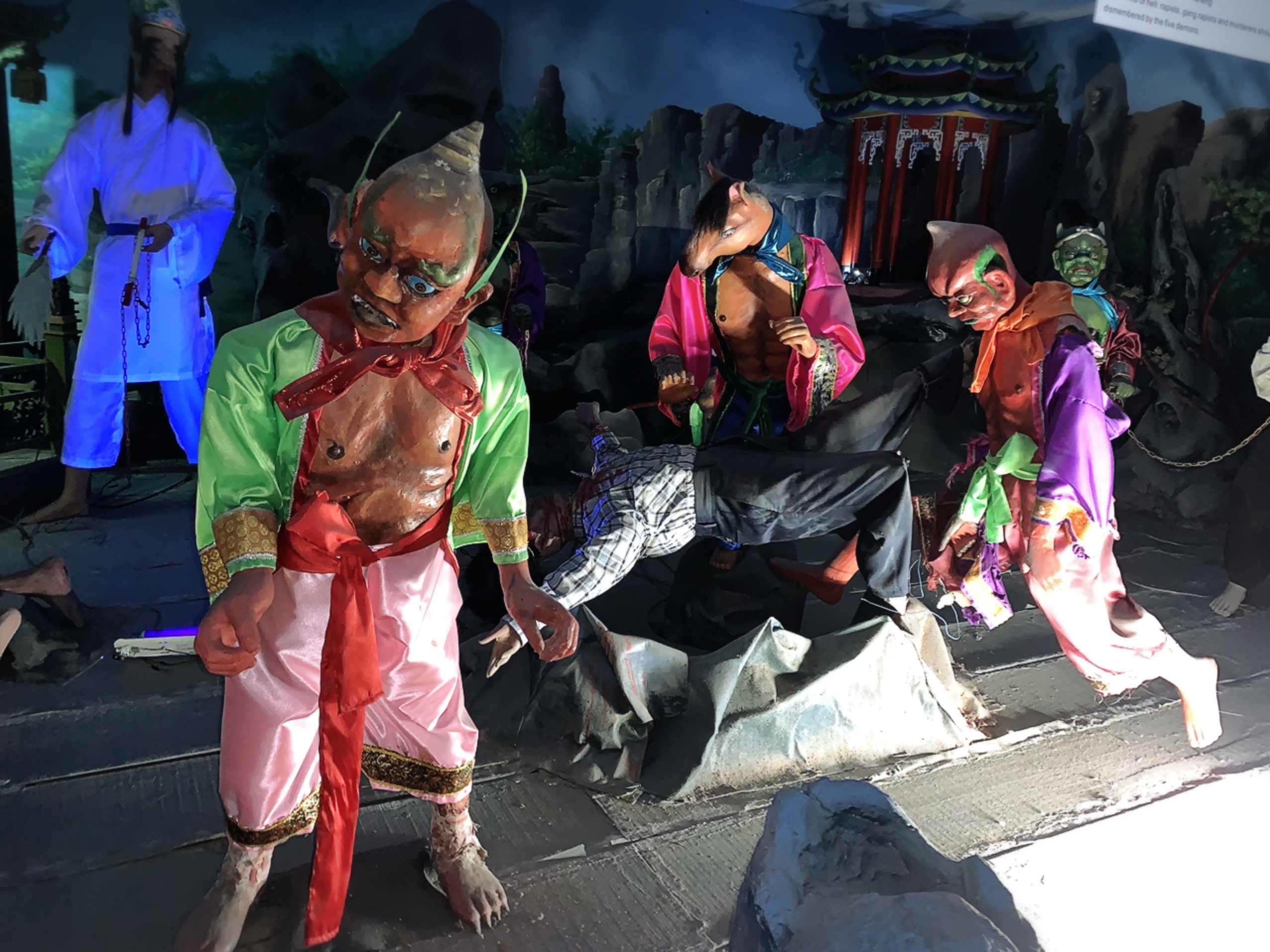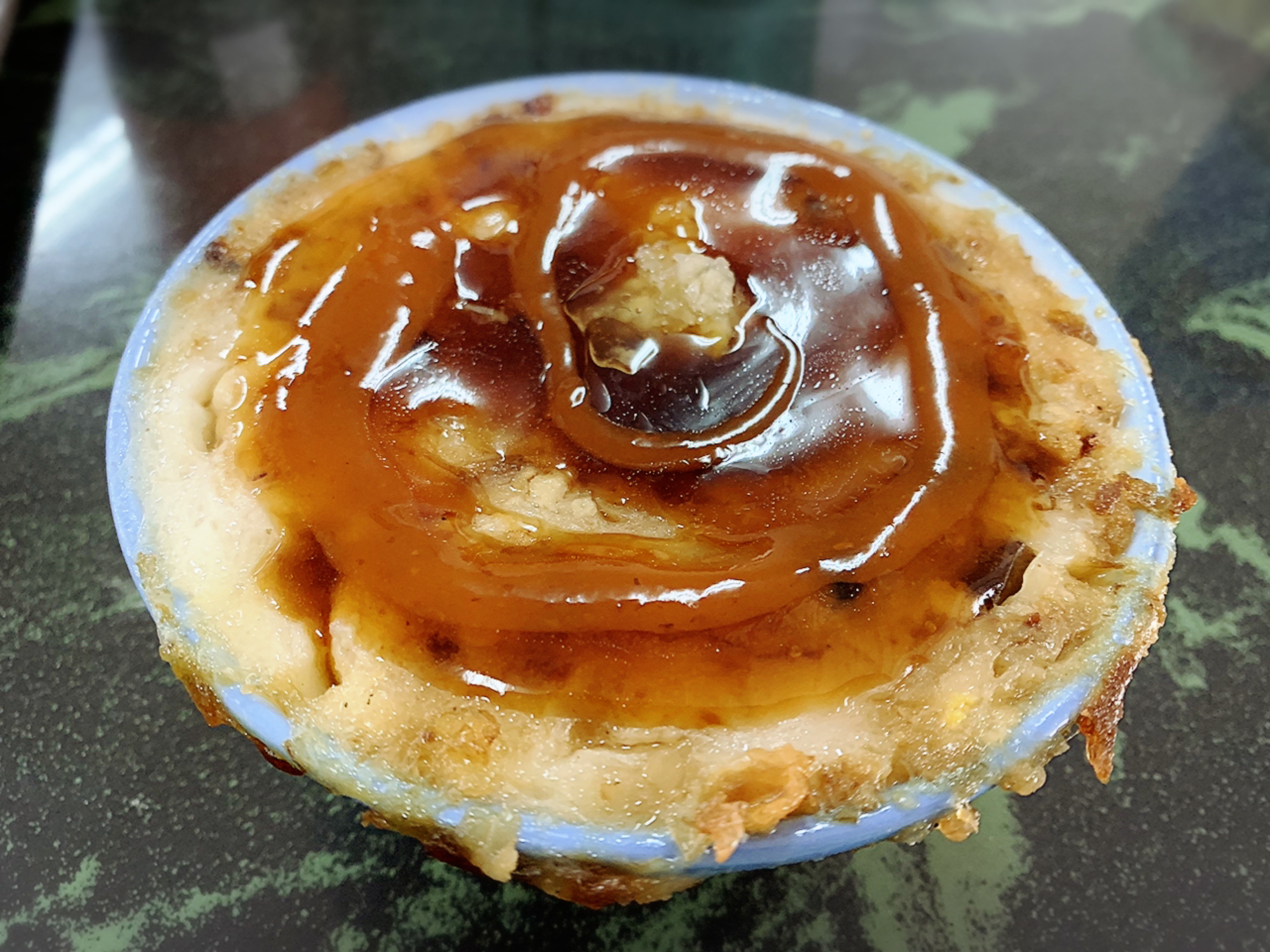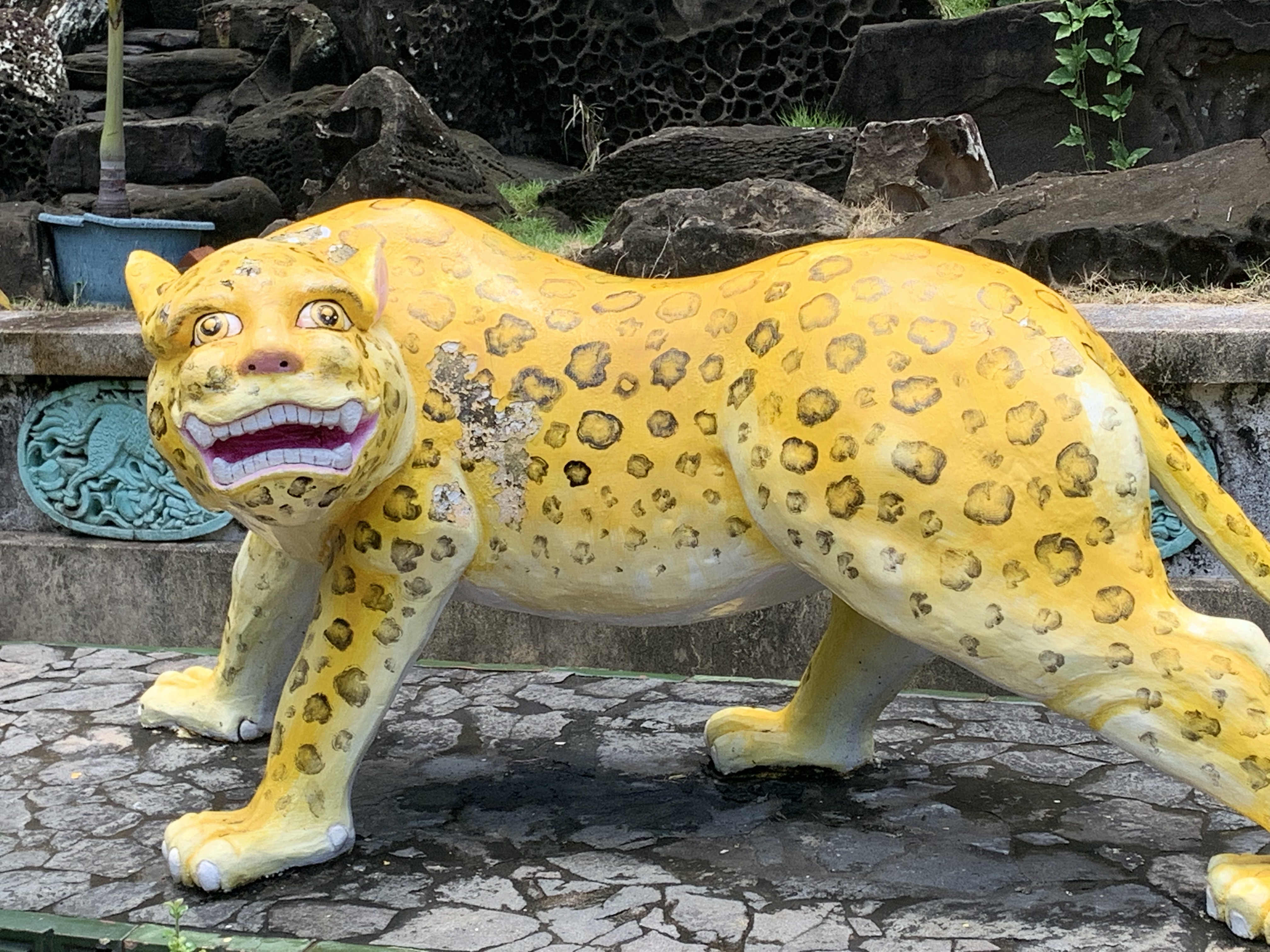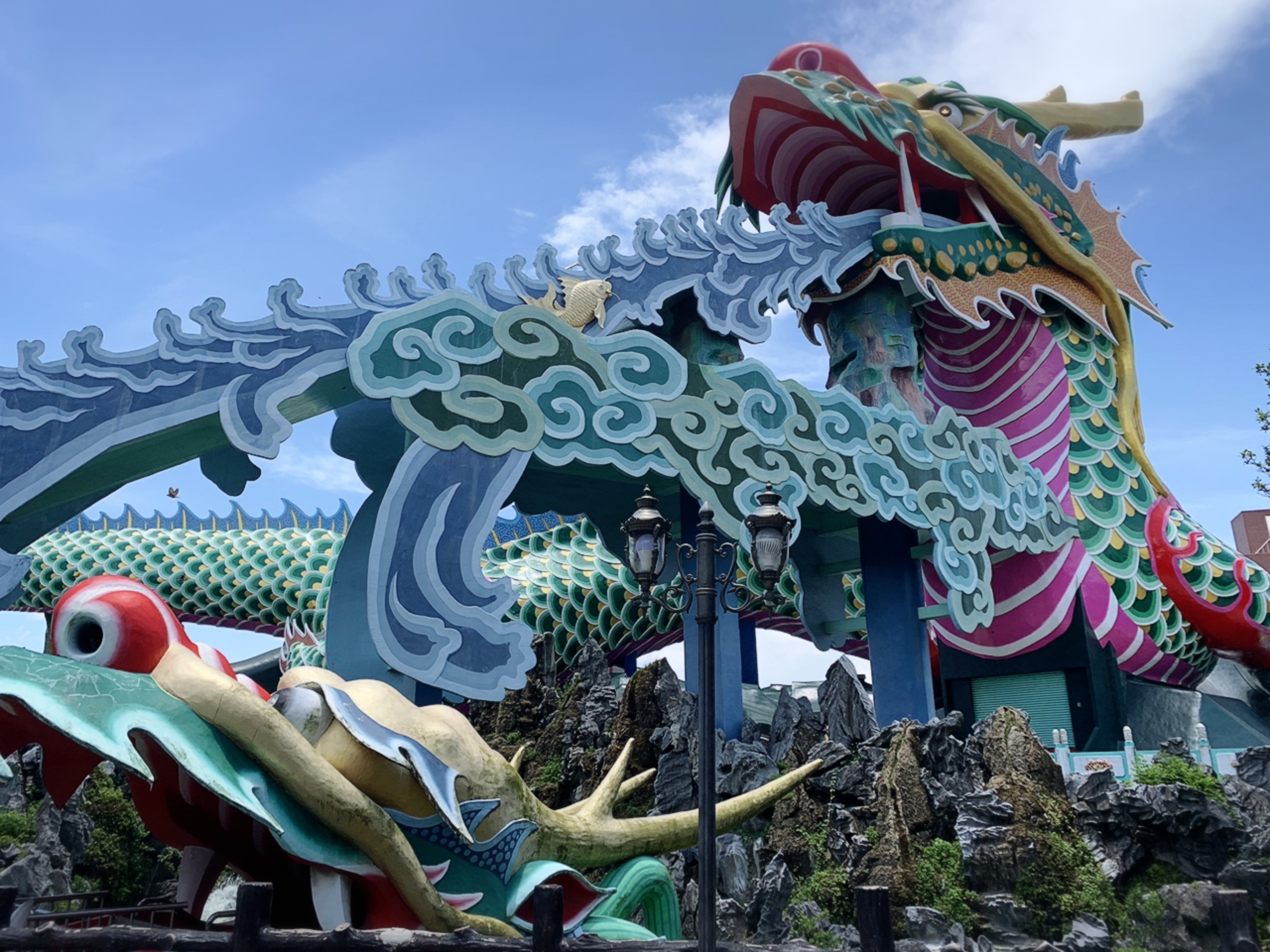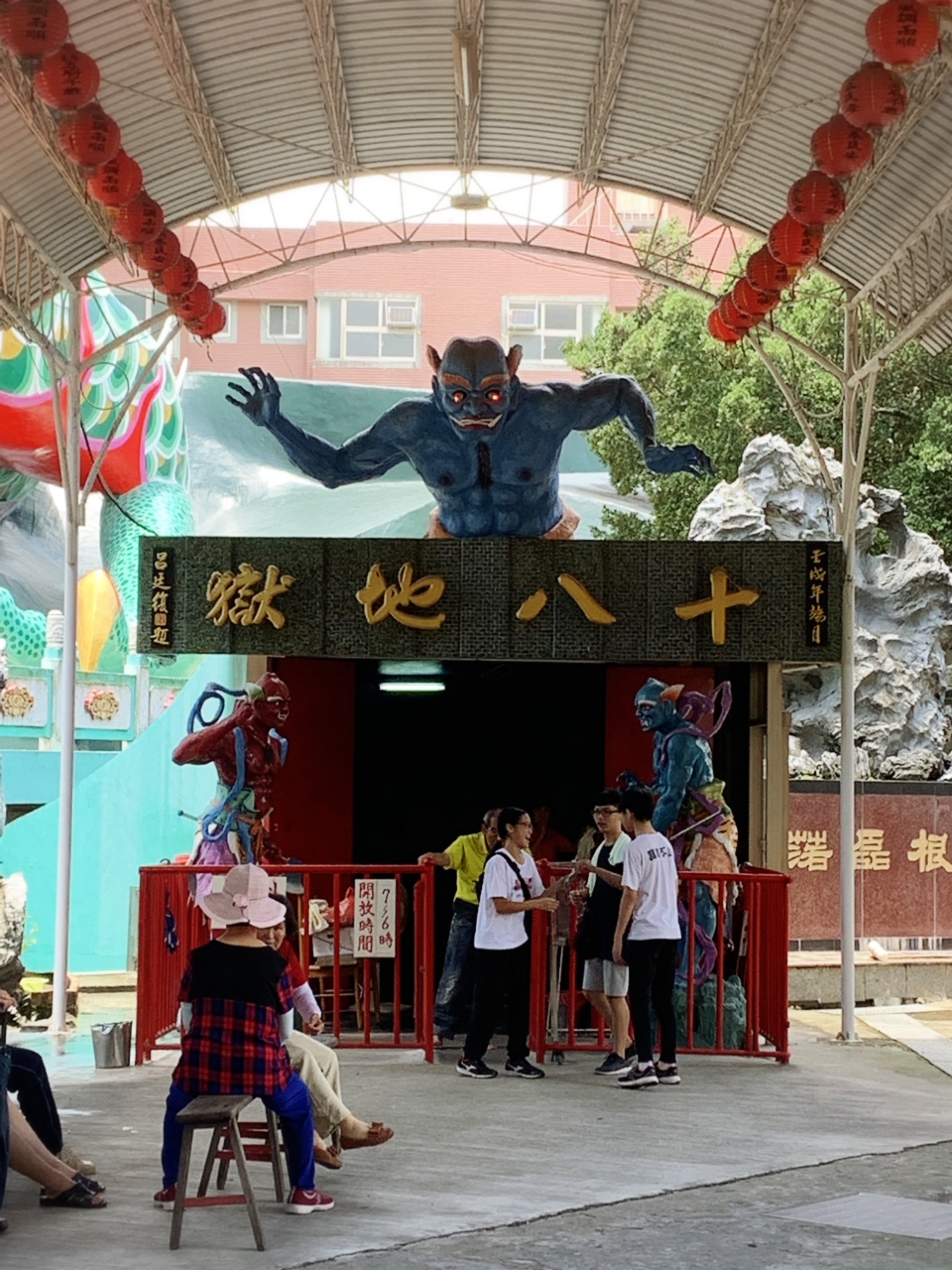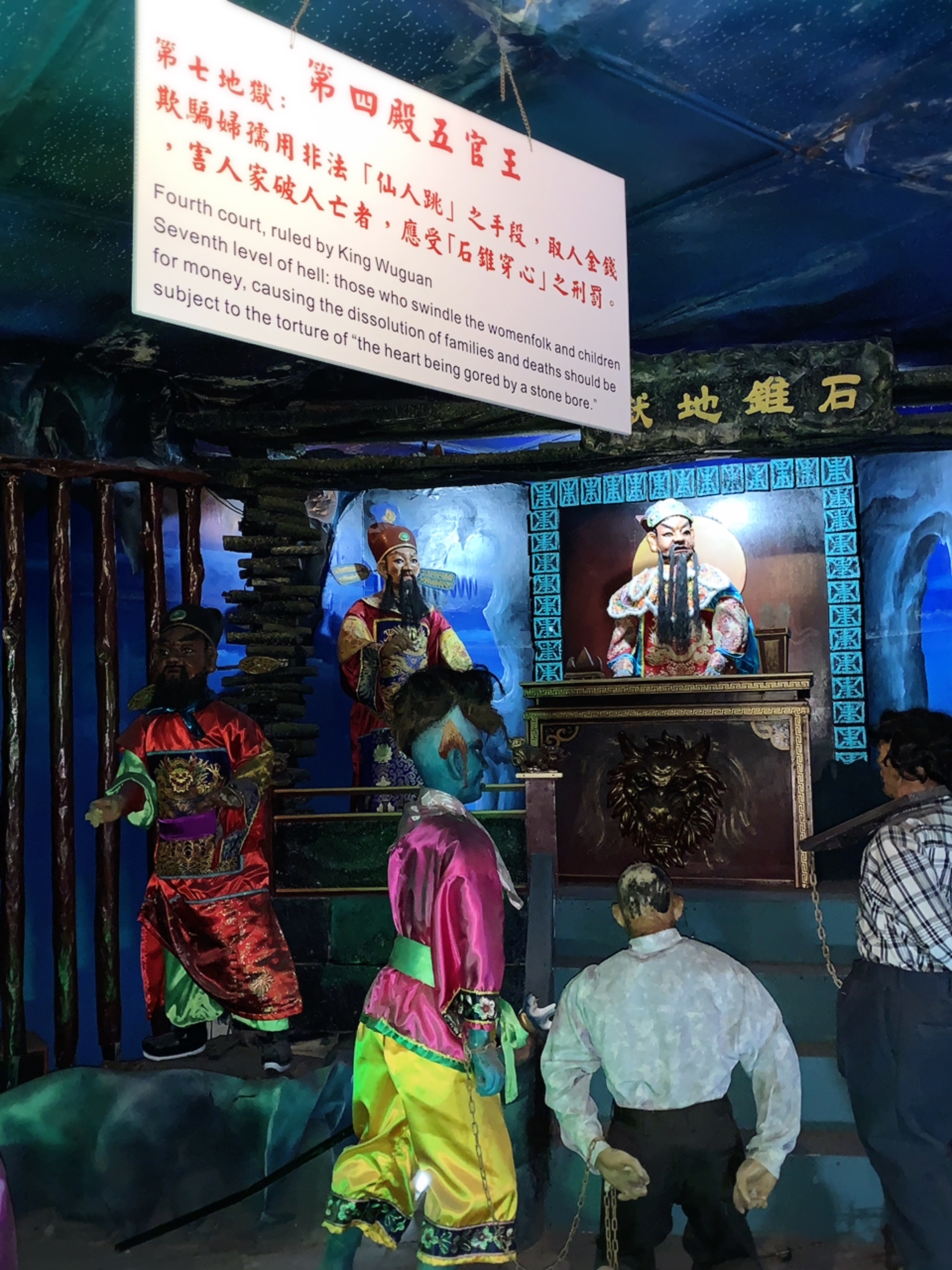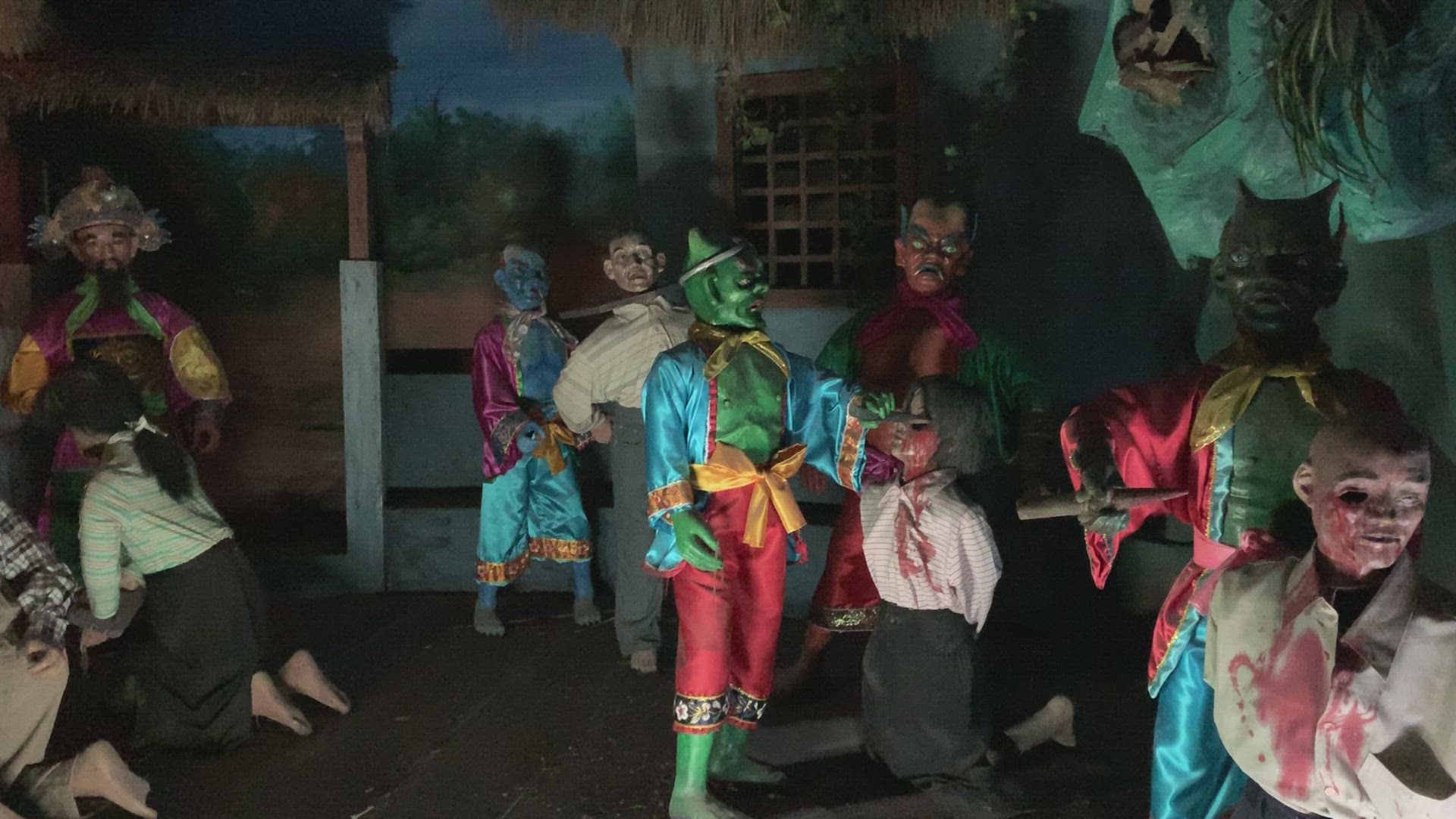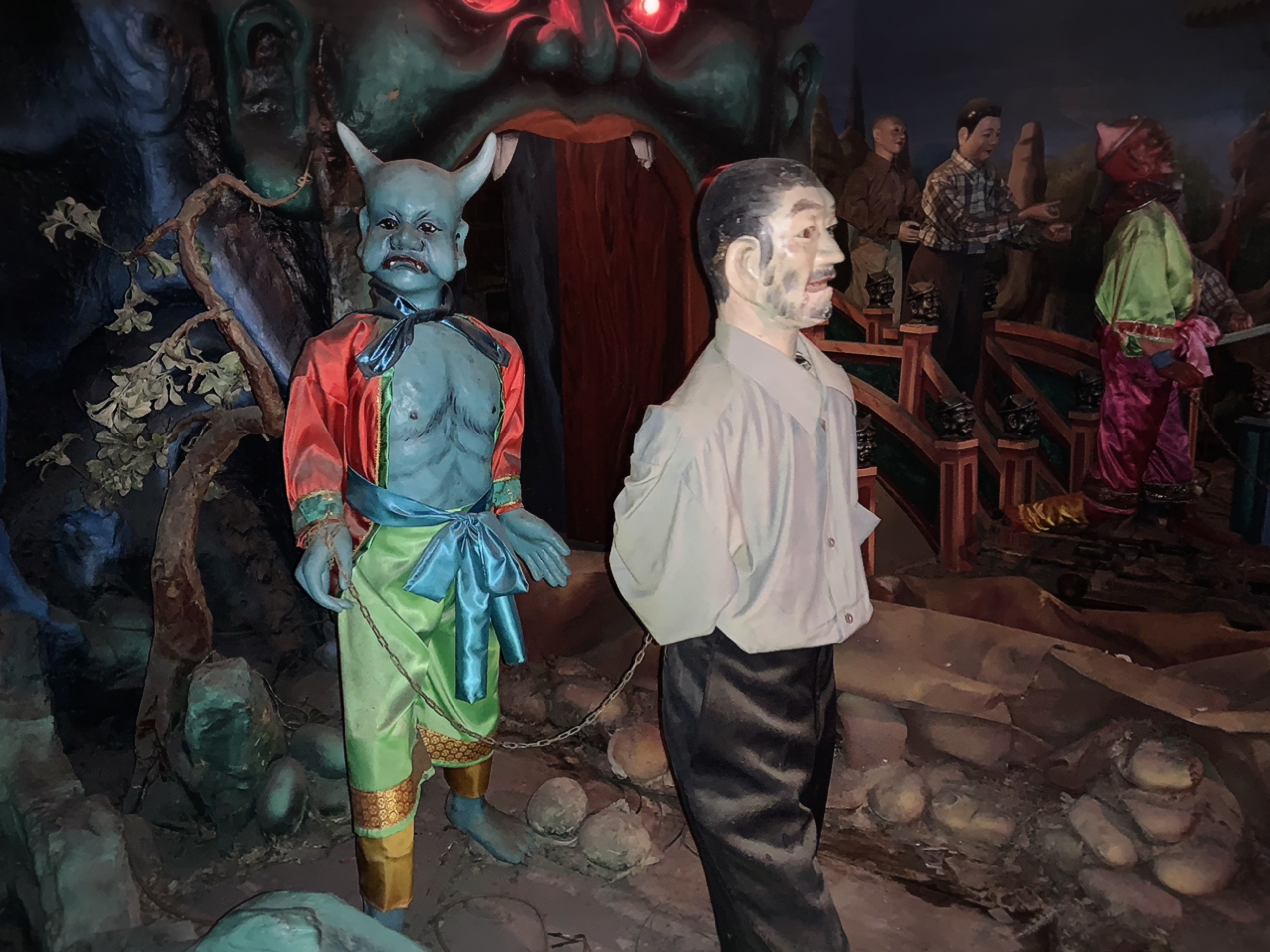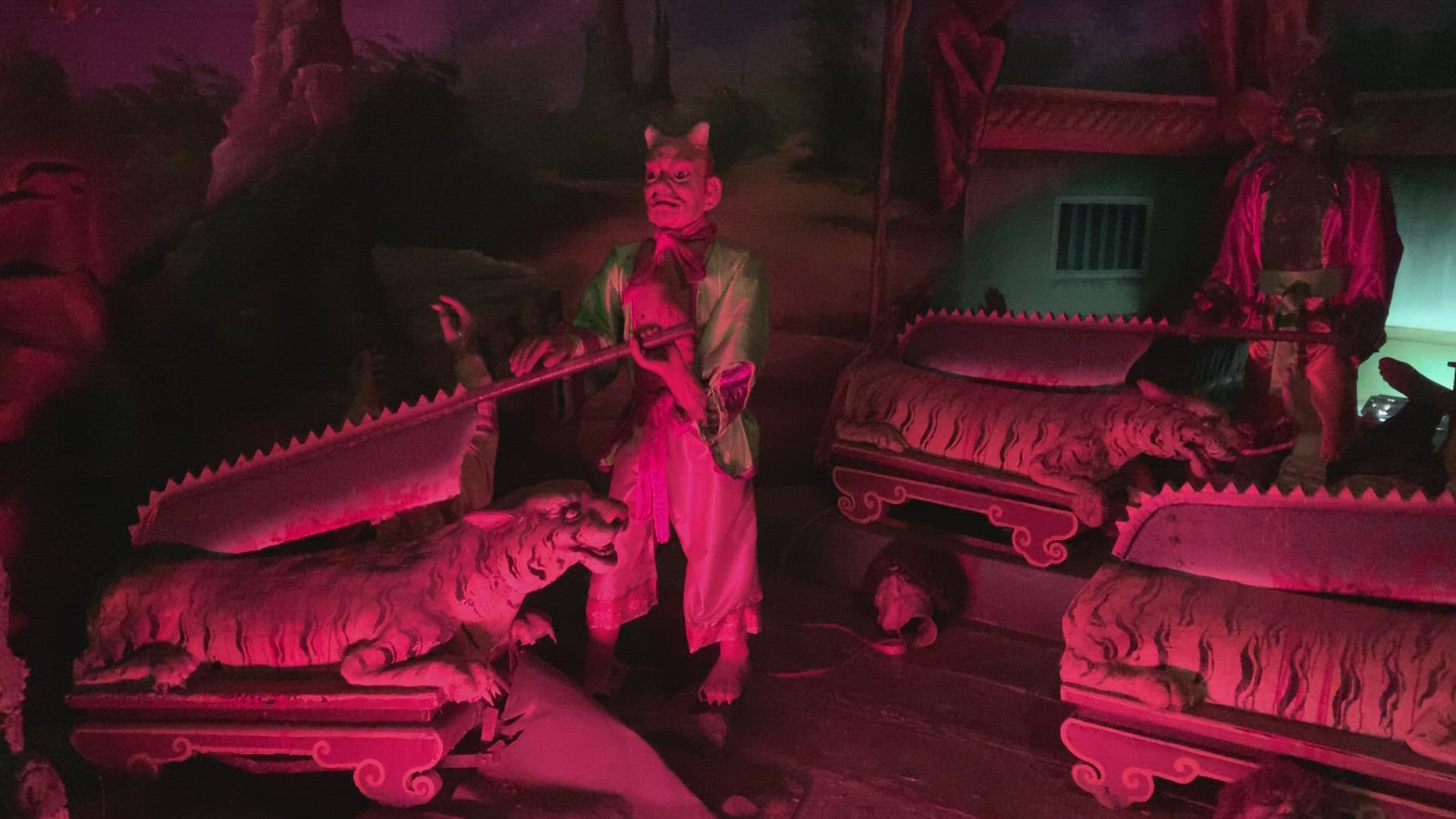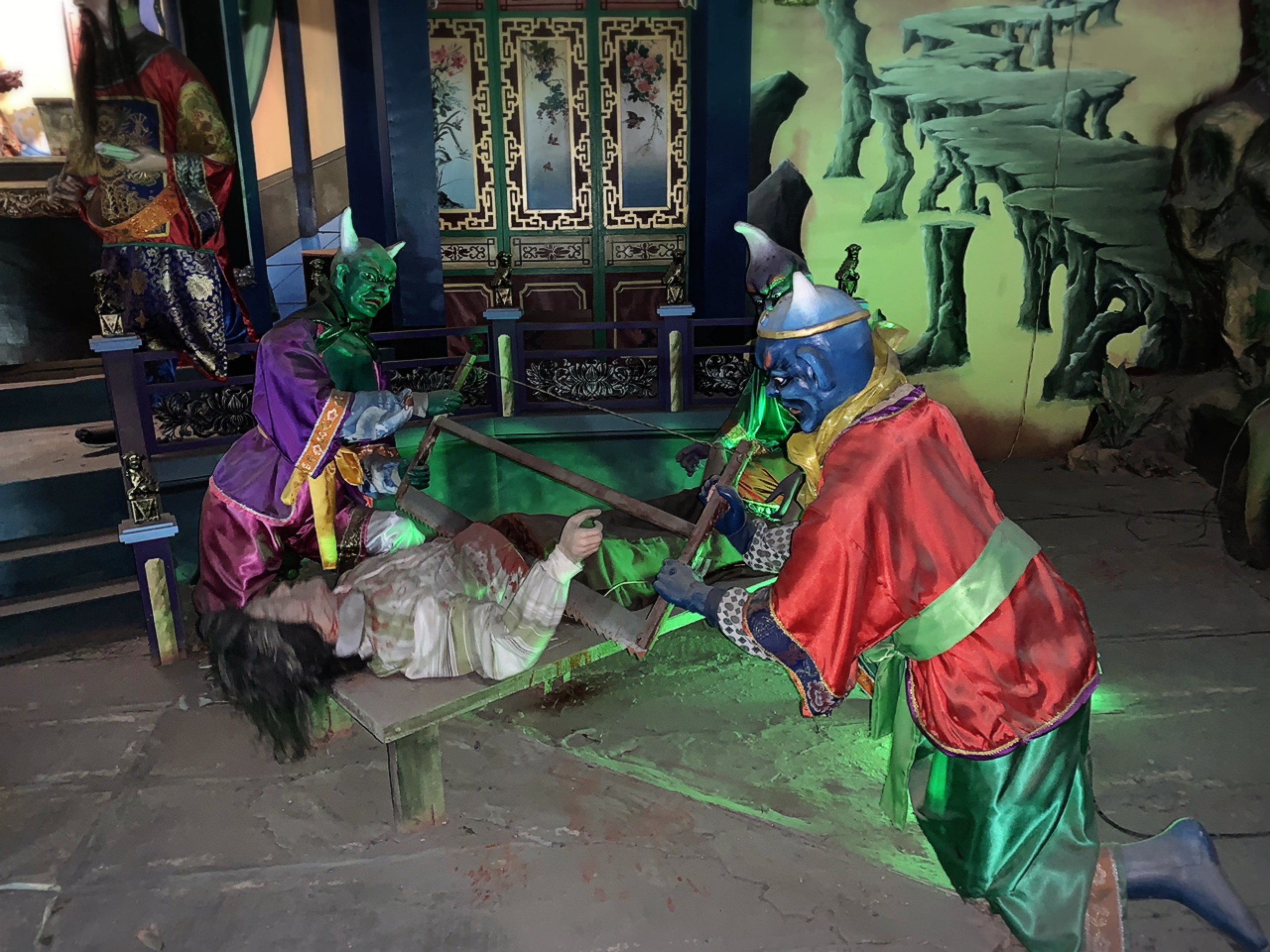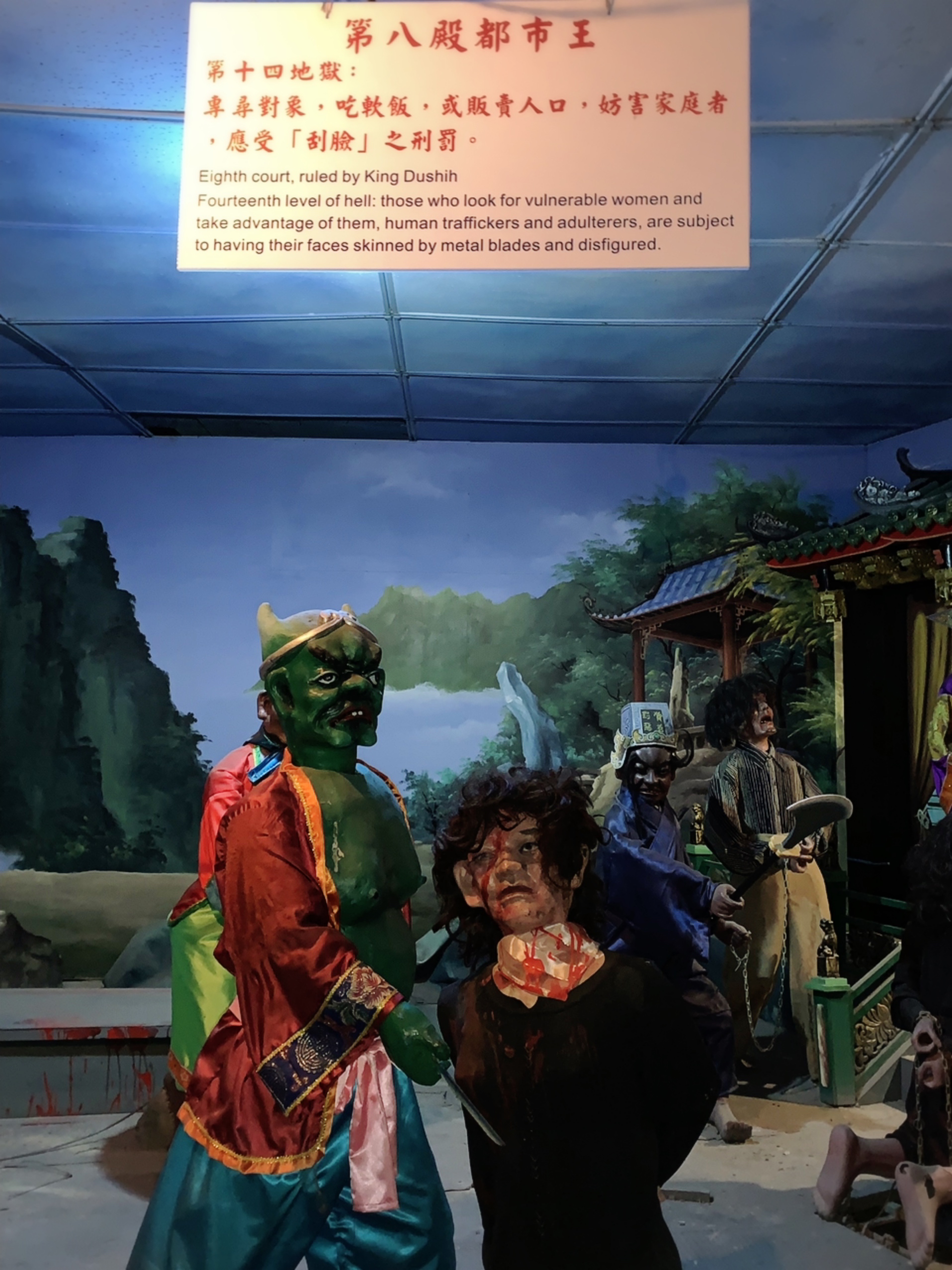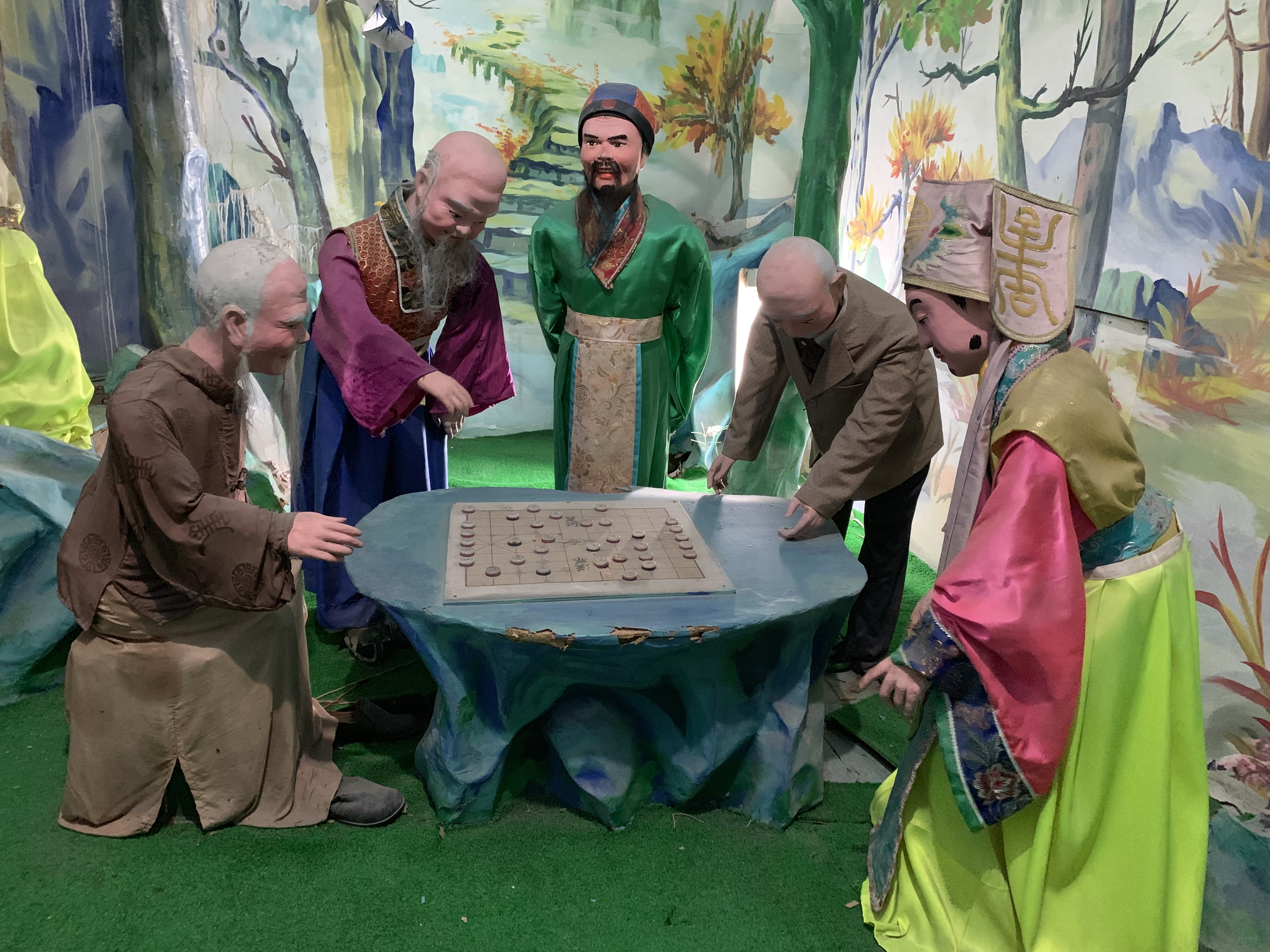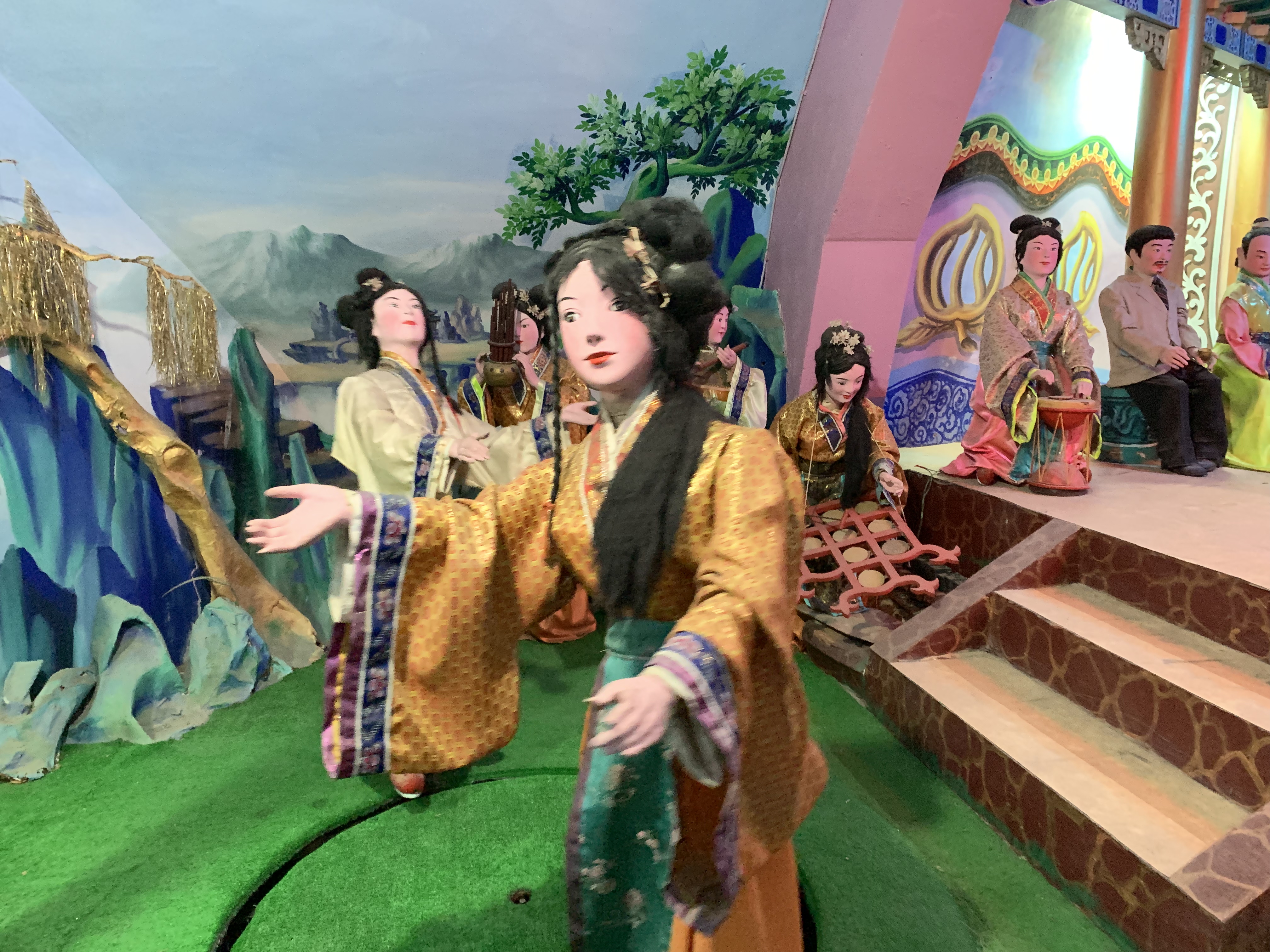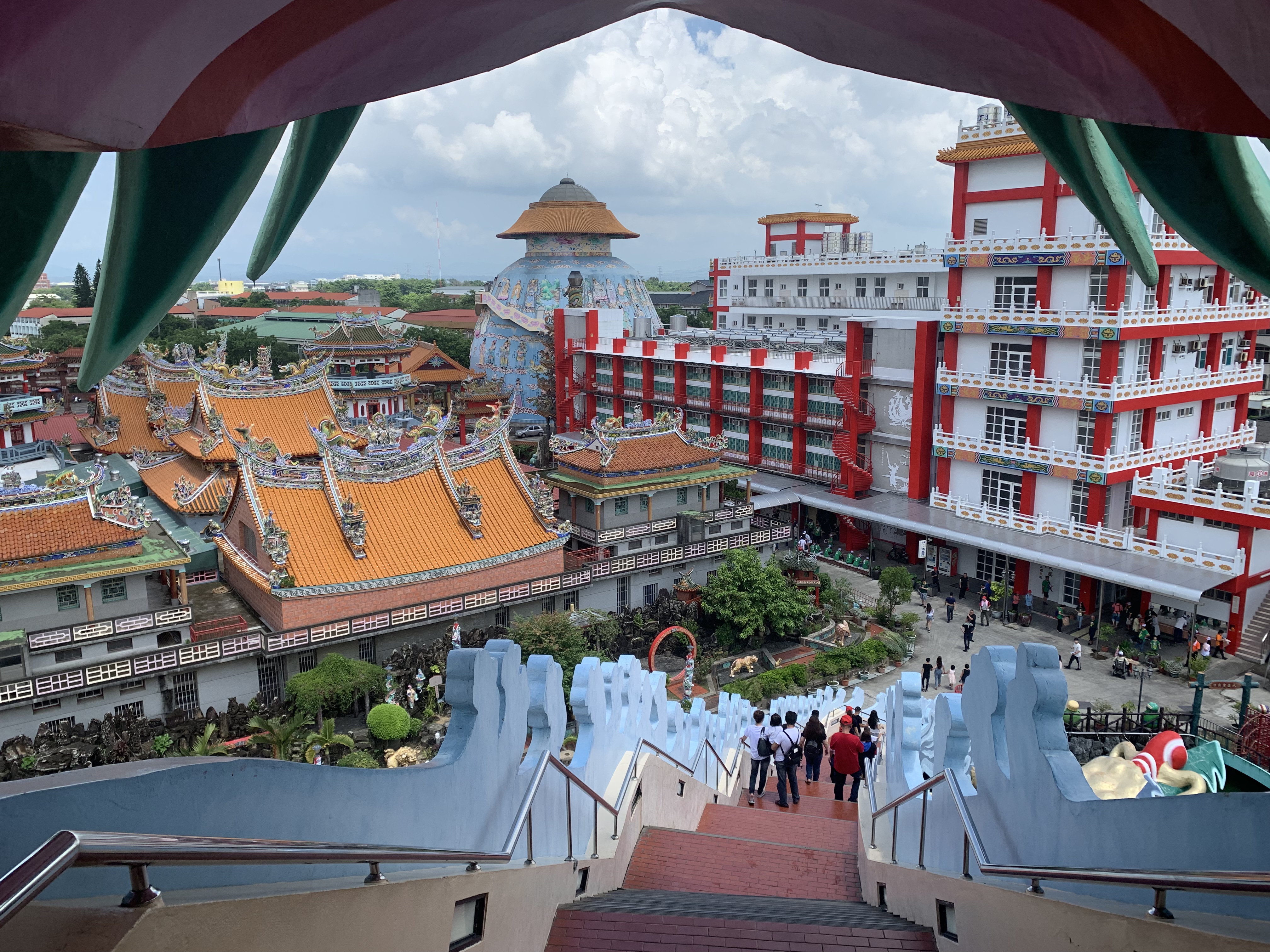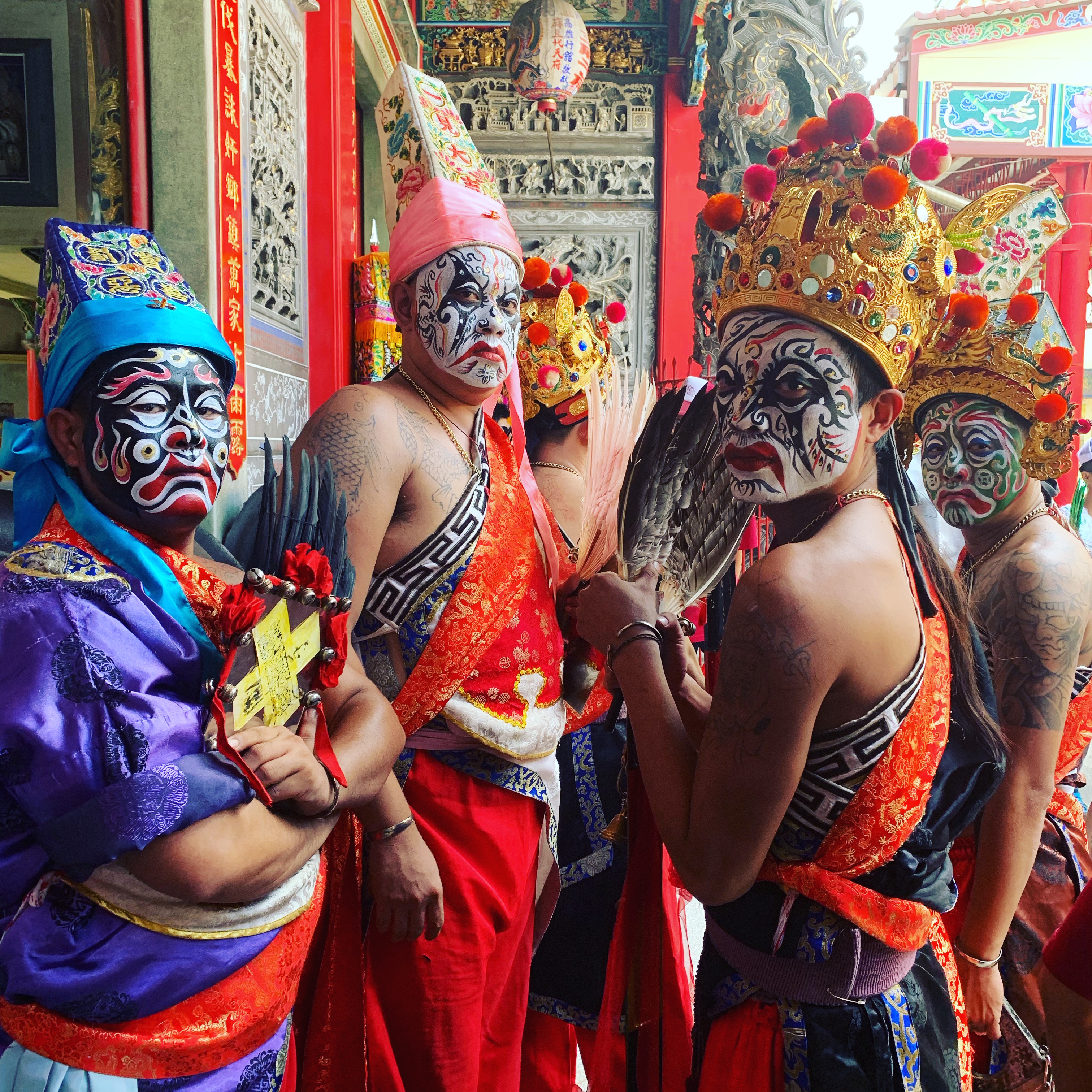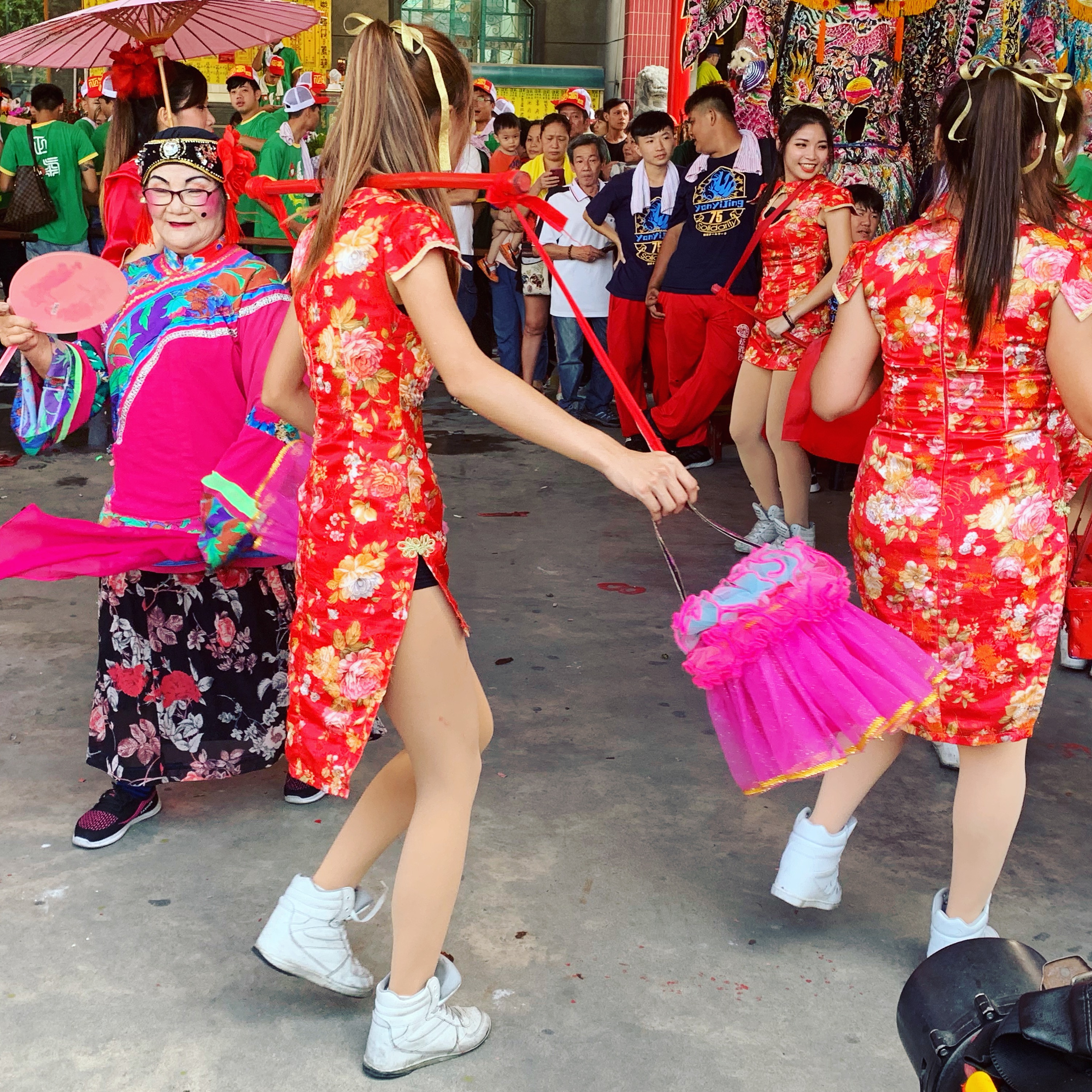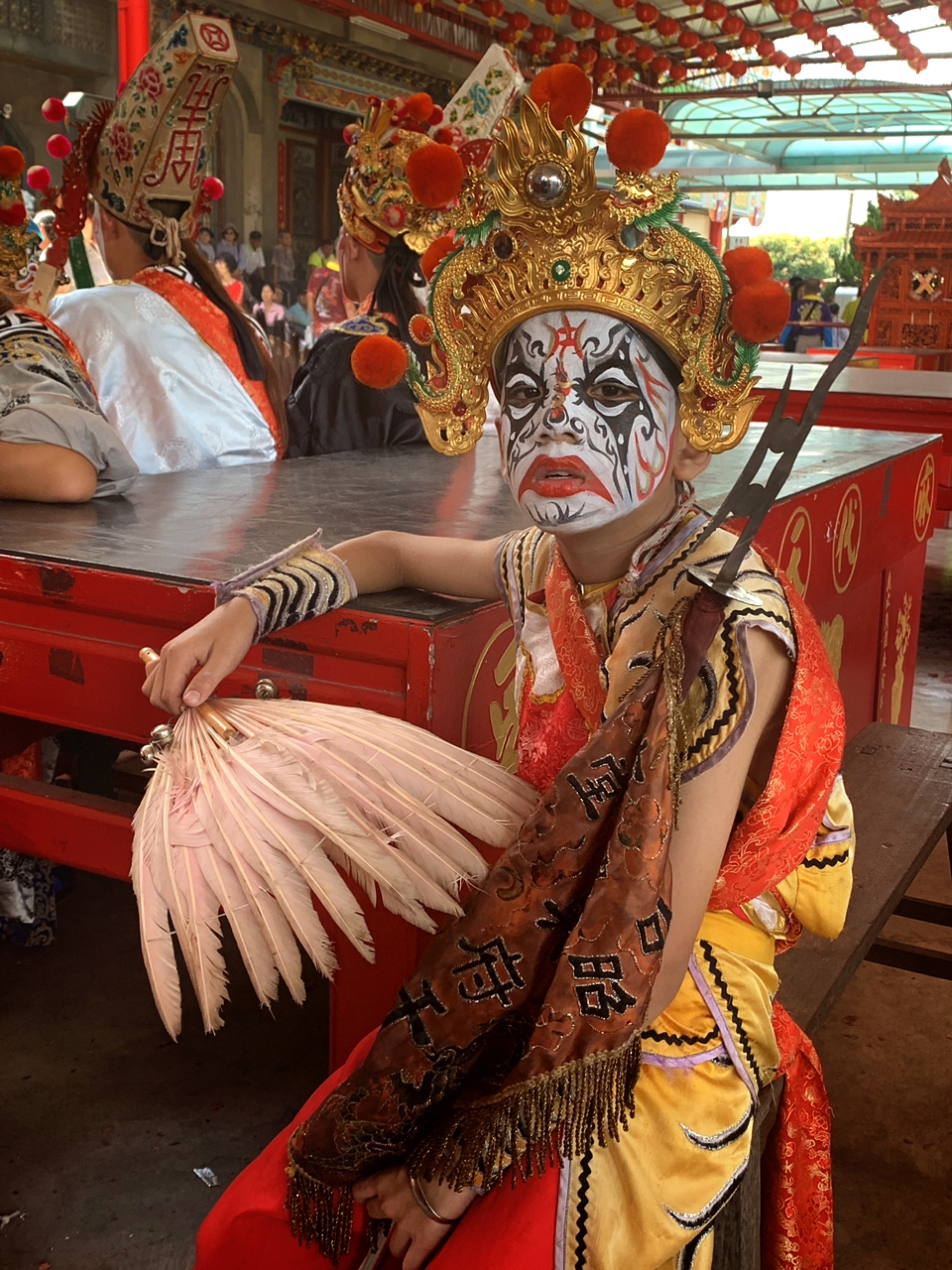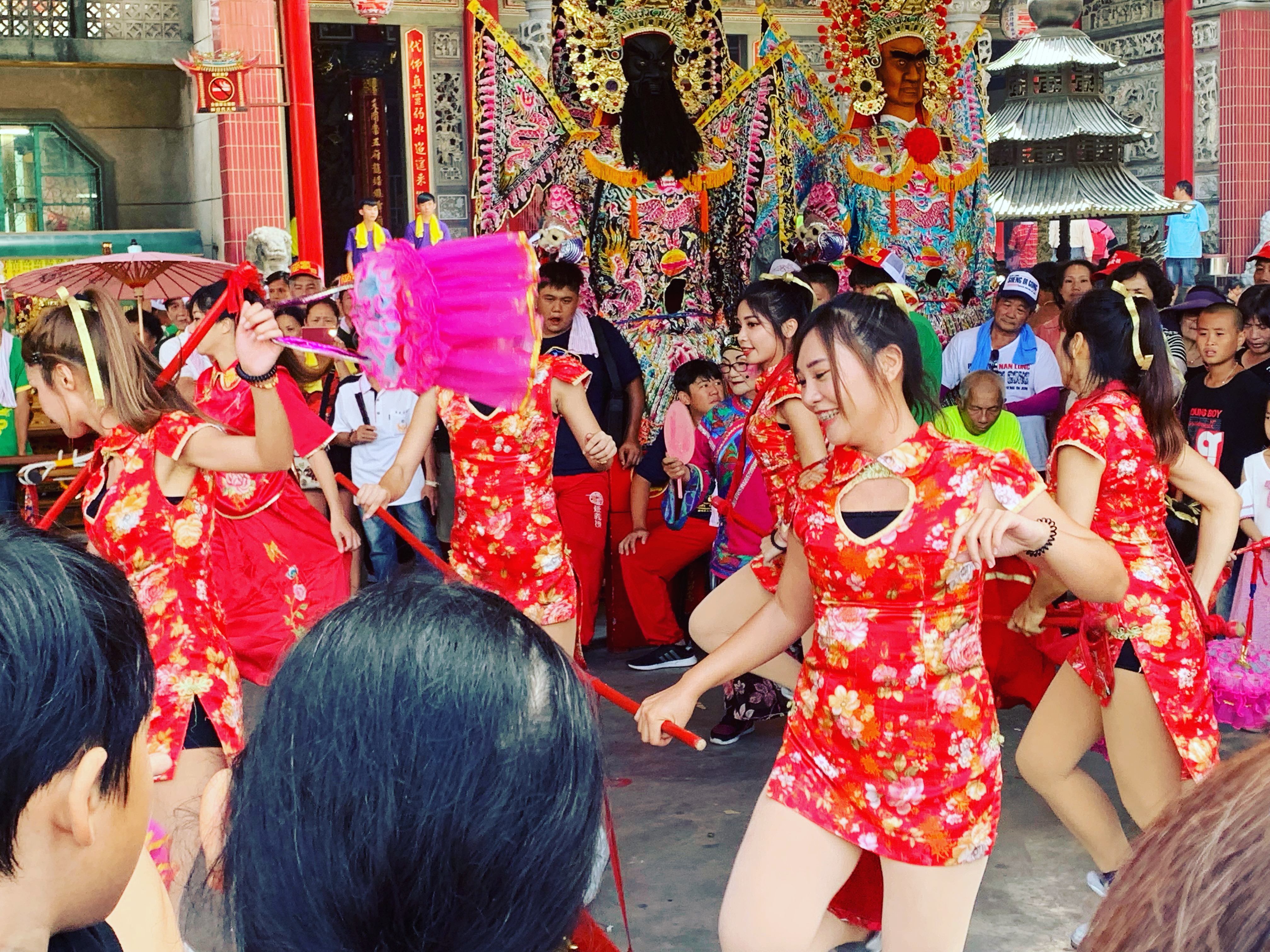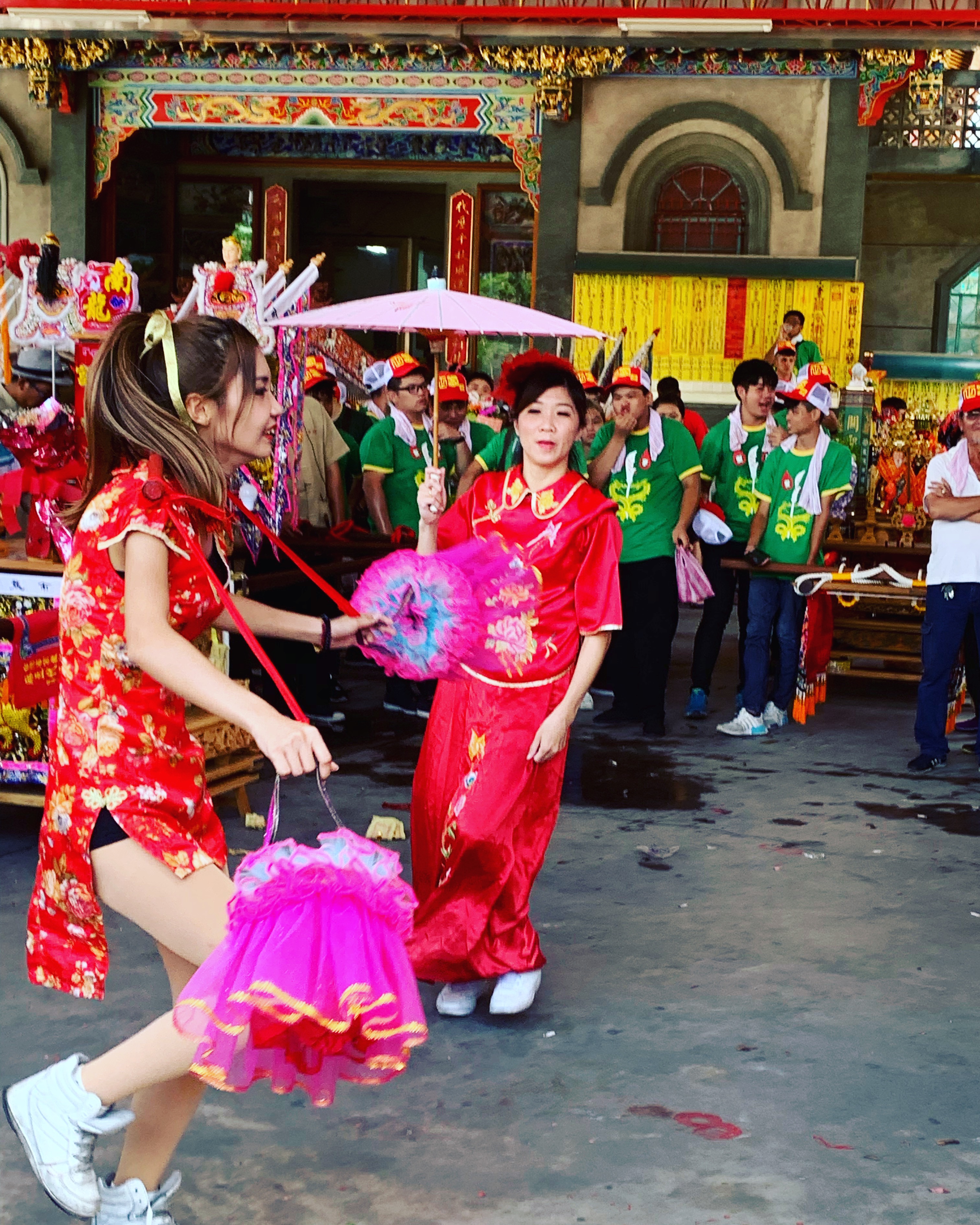 |
| A sarcastic funerary memorial to Li Peng, Carrie Lam, lawmaker and general douchebag Junius Ho and other anti-democracy political figures Photo courtesy of Jean-Francois Dupre |
Recently, Banqiao Senior High School in New Taipei decided to allow male students to wear skirts (most Taiwanese students wear uniforms). Female students are already allowed pants or skirts.
Some parents and parent-adjacent angry people spat out a few meaningless statements such as:
“Children like to do something wacky, to be different from others, so that people pay attention to them,” he [Hung Chih-ho, who leads a Kaohsiung-based parents' association and whose opinion on what happens in Banqiao does not matter] said, “but now boys are allowed to wear skirts to school, with the school attributing the change to respect for students’ right of autonomy.”
Yeah...and?
#Taiwan: Members of several parent organizations gathered in front of the Ministry of #Education (MOE) Friday to protest against a public high school’s decision to allow male students to wear skirts to school.#genderequity https://t.co/zER49LVvxi— Gwen Wang (@GwenythWR) July 28, 2019
Apparently their main complaint is...you know what? It doesn't matter.
What matters is this: with the new rule in effect, chances were that only a few boys would have chosen to wear skirts. It's not a norm yet so doing so is sort of a form of personal expression rather than an unremarkable choice (for now), and I don't know about you but I find shorts and pants far more comfortable than skirts.
But now, because some ornery seniors are complaining that the young'uns aren't upholding harmful gender norms to the degree that they expect because a few boys are choosing to put fabric on their bodies in ways that boys typically did not do before - OH NOES - you can be absolutely certain that more boys will choose to wear skirts simply to piss off the oldsters.
Good job, old people. You really showed them!
In highly related news, everyone's talking about the "illegal" protest in Yuen Long yesterday - illegal in quotes because the word implies doing something wrong when this protest was absolutely morally right.
It's not just that I think Yuen Long 7/27 got more support locally and internationally because people dared to show up despite the rejected protest application, but that these protests would in fact be far more peaceful if the police - and police-adjacent angry people - would just allow them to be peaceful. Think about it this way: if you don't throw tear gas, hire gangsters, beat people bloody, kill a guy with water cannons, put jubilee clips on your batons, protesters will assemble, march and go home. It's inconvenient, but not nearly as inconvenient as the world seeing that you either hired thugs, are thugs, or both.
And as a result, more people are showing up. Hong Kongers are getting angry. If they ever trusted those in charge, they no longer do. Occupy Central wasn't universally supported, but with the current spate of protests, all the police and government are doing is hardening the stance of more Hong Kongers against them and against China. They're showing up and demanding democracy exactly because they have been told they cannot have democracy.
They're doing it creatively too - told that they could not assemble there, a few people figured out that activities such as large-scale Pokemon hunting and religious celebrations are not bound by restrictions on assembly, and claimed those as excuses to gather. There was even a call to hold a sarcastic memorial for Li Peng - the Butcher of Beijing who presided over the Tiananmen Square Massacre - complete with a planned attempt to try to resurrect him.
Would protesters in the West be so creative (and sarcastic)? I don't think so, but then typically we don't have to find ways to protest when we're told we're not allowed.
People are calling for an 'full gear alchemist' gathering tomorrow in Yuen Long to revive Li Peng... -_- alongside Yuen Long pokemon hunting, shopping day, @hoccgoomusic fluid autograph signing party etc... pic.twitter.com/5381bPIcuC— Kris Cheng (@krislc) July 26, 2019
Good job, Hong Kong police (and hired gangsters - same thing really), the Hong Kong government, and China! You really showed them!
Eventually things would have escalated anyway - as I've said, the problem isn't the extradition treaty but China's plans for the endgame of One Country Two Systems and how incompatible that is with what Hong Kong wants. But it might not have mattered: though there are people who want full independence for Hong Kong, I gather that most would settle for being part of China but having democracy. Most of the time they'd probably have voted for boring, centrist politicians anyway and the few firebrands that would have gotten into office would have their say, but the status of Hong Kong as 'part of China' would not have been seriously disputed.
So if China had just let them have democracy and not made a thing of it, not insisted on half-assed fake democracy, not tried to force through terrifying extradition bills etc. etc., though decisions in Hong Kong might not have always gone exactly their way, China could have had almost all of what it wanted.
Of course, they can't do that, because of their absolute terror that letting people have a say in their government anywhere in China would lead to people in China wanting a say in their government everywhere. This is probably true, but then "the CCP could never allow that as they might lose power!" is not an ethically defensible justification. I don't think it matters though - if the CCP let Hong Kong have what it's demanding, they'd come off looking like 'the good guys', everyone would go on as usual, the bad international press would have never materialized and the real threats facing the CCP might have actually been held off longer, or at least with a lot less international scrutiny. People condemning them now might actually be defending them.
Whether or not it's a good thing for the CCP to stay in power - and I absolutely do not think it is - it might well have been in their own best interest to choose the slow-burning democracy threat over the "we look like murderous thugs to the international community" threat.
The same is true of Tibet. Though he doesn't speak for all Tibetans, the Dalai Lama has been clear that Tibet would settle for autonomy, and does not need independence. All China ever had to do was let it be - stop sending in Han Chinese settlers to change the population demographics (and making sure those settlers got all the best jobs), not trying to erase Tibetan culture or religion, not threatening monasteries and not insisting the CCP could choose who the next major lamas would be. If they'd done that, Tibet would be a lot better off, and China would have gotten almost everything they wanted. (I can't speak for Xinjiang, I'm less sure about that.)
Instead we have re-education camps, an internationally popular Dalai Lama, monks on fire, international celebrities sympathetic to the Tibetan cause and a province in near-lockdown.
Good job, Chinese government! You showed them!
Of course, with that comes the terror that Xinjiang, Inner Mongolia and other provinces with distinct non-Han cultures would want a similar degree of autonomy. Again, that's probably true, but I fail to see why it'd be a bad thing. I don't even think China would necessarily cease to exist.
And, of course, Taiwan.
This one is trickier as it involves straight-up independence, but if China allowed Taiwan to declare formal independence as the Republic of Taiwan, perhaps with a few acceptable concessions, and then said "you know what, we speak the same language and inhabit similar cultural spheres. Wanna be best friends and have tons of economic cooperation?", Taiwan probably would have said yes.
The way things are now, I don't know that I personally would trust such an offer, but the point still stands the CCP could probably have most of what it wants if they would just let go and stop being such assholes. There would still be a few hardcore China-haters around, metaphorical boys going to school in skirts no matter how much the CCP hated it, but I suspect the average Taiwanese voter would be quite fine with a close relationship with China as long as their autonomy, freedom and democratic rights were permanently assured through de jure independence.
I bet more Taiwanese would even claim Chinese ethnic identity alongside Taiwanese national identity, if doing so weren't a rhetorical point that Beijing is using to try to force its claim on Taiwan.
But no, a dogged insistence on fabricated boundaries (if they really cared about the pre-1911 boundaries, Beijing would claim Mongolia as well) and a desire for total control once again makes it harder for them to actually get the thing they want. Instead, Taiwan remains stubbornly free and quite rightly mistrusts all overtures from the CCP (and CCP-adjacent angry people), and a close economic relationship thwarted thanks to Beijing's own hubris.
Because they've convinced their own people that Taiwan is of vital national importance and letting Taiwan 'get away' would be a disaster for China, if Taiwan does in fact get away, some provinces of China might decide they want independence, too. If they hadn't manufactured such a potential crisis, I doubt that territories actually under Chinese governance would care nearly so much about a territory not under their governance formalizing its place in the international community.
And thanks to Hong Kong as well as changing international winds, the world is finally starting to notice.
Great job, CCP. Absolutely fantastic. You really showed them!
Now...who wants to put on skirts and head to Yuen Long?



